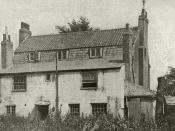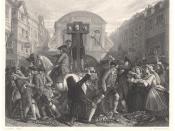"Herein it is that I take it upon me to make such a bold assertion, That all the world are mistaken in their practice about women, For I cannot think that God Almighty ever made them so delicate, so glorious creatures; and furnished them with such charms, so agreeable and so delightful to mankind; with souls capable of the same accomplishments of men: and all, to be only Stewards of our Houses, Cooks, and Slaves." - Daniel Defoe
The sited quotation taken from Defoe's essay: 'The Education of Women' is synonymous with the plight of the English female during the early eighteenth century. Interestingly, the opinion articulated by Defoe in his essay, when considered in relation to the era in which it was produced, would have been deemed by many to be unconventional to say the very least. This is something that Defoe himself undoubtedly recognises in his statement: "I take it upon me to make such a bold assertion".
Throughout European history women have endeavoured to be considered as the social and indeed intellectual equals of their male counterparts, yet the life of an eighteenth century European woman was in complete contrast to that of the contemporary female. This was an existence many thought should be defined solely in its relationship to the male and thus justifying Defoe's use of the lexis "Slaves":
"The education of women should always be relative to that of men. To please, to be useful to us, to make us love and esteem them, to educate us when young, to take care of us when grown up, to advise, to console us, to render our lives easy and agreeable; these are the duties of women at all times, and what they should be taught in their infancy."
This highly chauvinistic notion expressed through...


